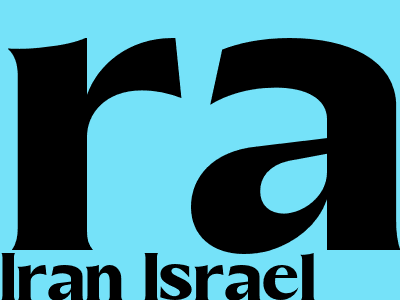
The Complex and Contentious Relationship Between Iran and Israel
A Historical Rivalry Rooted in Regional Tensions
The relationship between Iran and Israel has been marked by mistrust and hostility for decades. The underlying causes of this rivalry are deeply rooted in historical, political, and religious factors. The conflict between these two nations dates back to the establishment of Israel in 1948, which Iran has consistently opposed.
One of the primary sources of tension stems from Iran's support for Palestinian groups that seek to challenge Israel's existence. Iran views Israel as an illegitimate state and considers its support for the Palestinian cause a matter of religious and political principle. This support has led to accusations of Iran sponsoring terrorism and fueling the conflict in the Middle East.
Regional Hegemony and Power Dynamics
Competing for Influence in the Middle East
Beyond historical and religious differences, the rivalry between Iran and Israel is also driven by geopolitical considerations. Both countries seek regional hegemony and have significant influence over their respective spheres of interest in the Middle East. Iran's support for Shia militias in Lebanon, Syria, and Iraq has brought it into direct conflict with Israel's interests in the region.
Nuclear Ambitions and Security Concerns
Another key factor contributing to the tensions between Iran and Israel is the issue of nuclear weapons. Israel considers Iran's nuclear program a grave threat to its security, while Iran maintains that its nuclear ambitions are solely for peaceful purposes. The international community's concerns about Iran's nuclear program have led to sanctions and diplomatic efforts to prevent Iran from developing nuclear weapons.
Confrontation and Escalation
Proxy Wars and Covert Operations
The hostility between Iran and Israel has often taken the form of proxy wars and covert operations. Iran has been accused of providing support to Hezbollah, a Lebanese militant group that has launched attacks on Israel. Israel, in turn, has been linked to assassinations of Iranian nuclear scientists and military leaders.
Direct Military Confrontations
In addition to proxy wars, there have also been direct military confrontations between Iran and Israel. In 2018, Israel conducted airstrikes on Iranian targets in Syria, where Iran has a significant military presence. Iran retaliated by firing rockets towards Israeli-held territory. While there have been no direct large-scale wars between the two countries, the potential for further escalation remains high.
Diplomatic Efforts and International Involvement
Negotiations and Peace Overtures
Despite the deep-seated tensions, there have been occasional attempts at diplomatic engagement between Iran and Israel. In the 1990s, there were secret talks between the two countries, but they failed to yield any significant progress. More recently, there have been discussions on the possibility of a nuclear deal with Iran that could ease tensions.
International Mediation and Pressure
The international community has played a significant role in trying to mediate between Iran and Israel. The United States has been a key player in diplomatic efforts, including the negotiation of the Joint Comprehensive Plan of Action (JCPOA), which aimed to limit Iran's nuclear program in exchange for sanctions relief. However, the JCPOA has been a source of contention between the US and Iran, further complicating diplomatic efforts.
Conclusion: A Complex and Unresolved Conflict
The relationship between Iran and Israel remains one of the most contentious and unresolved conflicts in the Middle East. The underlying causes of this rivalry are deeply rooted in historical, political, and religious factors, and geopolitical considerations play a significant role in fueling the hostility between the two countries. Despite occasional diplomatic overtures, the potential for further escalation and confrontation remains high.
The resolution of the conflict between Iran and Israel is critical for regional stability and peace. It will require sustained diplomatic efforts, international cooperation, and a willingness on both sides to compromise and find a mutually acceptable solution.